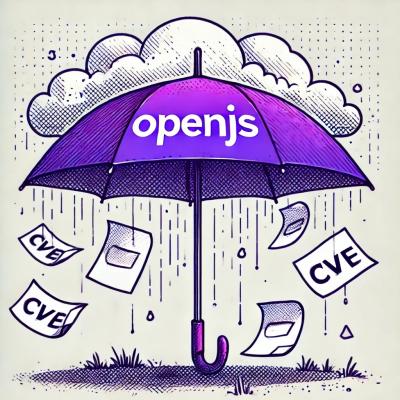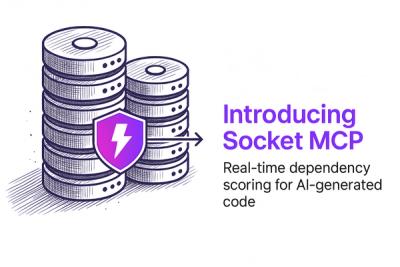



gostruct
Library to auto-generate packages and basic CRUD operations for a given MySQL database table.
dependencies
github.com/go-sql-driver/mysql
github.com/pkg/errors
implementation
go get github.com/jrkt/gostruct
Create a generate.go file with the following contents (including your db username/password):
package main
import (
"github.com/jrkt/gostruct"
)
func main() {
gs := new(gostruct.Gostruct)
gs.Username = "{username}"
gs.Password = "{password}"
err := gs.Generate()
if err != nil {
println("Generate Error:", err)
}
}
Assume you had a 'user' table with the following schema:

...you would run:
go run generate.go -tables user -db {db} -host {host}
A package with a struct of the table and several methods to handle common requests will be created in the $GOPATH/src/models/{table} directory. The files that are created, for a 'User' model (for example) would be:
- User_base.go
- contains the main CRUD methods: Save(insert/update) & Delete, and common functions such as: ReadByKey, ReadAll, ReadOneByQuery, ReadByQuery, and Exec
- This also validates any enum/set data type with the value passed to ensure it is one of the required fields before persisting to the database
- User_extended.go
- this will hold any custom methods and functions used in accordance with the User model. This package should not import any other model packages to avoid cyclical imports
- User_test.go
- serves as a base for your unit testing
It will also generate a connection package to share connection(s) to prevent multiple open database connections. The generated package(s) implement the connection.Info interface that allows you derive the
type and typeId (table & primary key) from any object by simple calling:
user, _ := User.ReadByKey(12345)
table, pk := user.TypeInfo()
The pattern for generating packages for multiple tables is just a comma-separated list:
go run generate.go -tables table1,table2,table3 -db {db} -host {host}
flags
tables
Comma-separated list of MySQL database tables
db
Name of the MySQL database
host
Hostname or server of where the database is located
port
Defaults to 3306 if not provided
all
If this option is passed in as "true", it will run for all tables based on the database
nameFuncs
Set this flag to true if you want the struct name included in the auto-generated method/function names
usage
package main
import (
"models/User"
)
func main() {
user, err := User.ReadByKey(ctx, 12345)
if err != nil {
}
user.Email = "test@email.com"
user.Save(ctx)
user := new(User.User)
user.Email = "test@email.com"
res, err := user.Save(ctx)
if err != nil {
}
_, err := user.Delete(ctx)
if err != nil {
}
}
User_extended.go - sample function to include
func ReadAllActive(ctx context.Context, options connection.QueryOptions) ([]*UserObj, error) {
return ReadByQuery(ctx, "SELECT * FROM User WHERE IsActive = '1'", options)
}
Usage:
func main() {
users, err := User.ReadAllActive(ctx, connection.QueryOptions{OrderBy: "Name ASC"})
if err != nil {
}
for _, user := range users {
}
}
User_extended.go - sample method to include
func (user *UserObj) Terminate(ctx context.Context) error {
user.IsActive = false
user.TerminationDate = time.Now().Local()
_, err := user.Save(ctx)
if err != nil {
return err
}
return nil
}
Usage:
func main() {
users, err := User.ReadAllActive(ctx, connection.QueryOptions{OrderBy: "Name ASC"})
if err != nil {
}
for _, user := range users {
err = user.Terminate()
if err != nil {
}
}
}
developers
example generated code
User_base.go - sample file
package User
import (
"connection"
"database/sql"
"reflect"
"strings"
_ "github.com/go-sql-driver/mysql"
"github.com/pkg/errors"
"golang.org/x/net/context"
)
type User struct {
Id int64 `column:"id" default:"" type:"int(11)" key:"PRI" null:"NO" extra:"auto_increment"`
Name string `column:"name" default:"" type:"varchar(45)" key:"" null:"NO" extra:""`
Email string `column:"email" default:"" type:"varchar(200)" key:"" null:"NO" extra:""`
Age *int64 `column:"age" default:"" type:"int(11)" key:"" null:"YES" extra:""`
}
type user struct {
Id int64
Name string
Email string
Age sql.NullInt64
}
func (obj *User) TableName() string {
return "user"
}
func (obj *User) PrimaryKeyInfo() (string, interface{}) {
val := reflect.ValueOf(obj).Elem()
var objTypeId interface{}
for i := 0; i < val.NumField(); i++ {
valueField := val.Field(i)
column := val.Type().Field(i).Tag.Get("column")
if "id" == column {
switch valueField.Kind() {
case reflect.Int:
objTypeId = valueField.Interface().(int)
case reflect.Int64:
objTypeId = valueField.Interface().(int64)
case reflect.String:
objTypeId = valueField.Interface().(string)
}
}
}
return "id", objTypeId
}
func (obj *User) TypeInfo() (string, interface{}) {
_, pkVal := obj.PrimaryKeyInfo()
return "user", pkVal
}
func (obj *User) Save(ctx context.Context) (sql.Result, error) {
v := reflect.ValueOf(obj).Elem()
args, columns, q, updateStr, err := connection.BuildQuery(v, v.Type())
if err != nil {
return nil, errors.Wrap(err, "field validation error")
}
query := "INSERT INTO user (" + strings.Join(columns, ", ") + ") VALUES (" + strings.Join(q, ", ") + ") ON DUPLICATE KEY UPDATE " + updateStr
newArgs := append(args, args...)
newRecord := false
if obj.Id == 0 {
newRecord = true
}
res, err := Exec(ctx, query, newArgs...)
if err == nil && newRecord {
id, _ := res.LastInsertId()
obj.Id = id
}
if err != nil {
err = errors.Wrap(err, "save failed for user")
}
return res, err
}
func (obj *User) Delete(ctx context.Context) (sql.Result, error) {
return Exec(ctx, "DELETE FROM user WHERE id = ?", obj.Id)
}
func ReadByKey(ctx context.Context, id int64) (*User, error) {
return ReadOneByQuery(ctx, "SELECT * FROM user WHERE id = ?", id)
}
func ReadAll(ctx context.Context, options ...connection.QueryOptions) ([]*User, error) {
return ReadByQuery(ctx, "SELECT * FROM user", options)
}
func ReadByQuery(ctx context.Context, query string, args ...interface{}) ([]*User, error) {
var objects []*User
con, err := connection.Get("sys")
if err != nil {
return objects, errors.Wrap(err, "connection failed")
}
newArgs := connection.ApplyQueryOptions(&query, args)
query = strings.Replace(query, "'", "\"", -1)
rows, err := con.QueryContext(ctx, query, newArgs...)
if err != nil {
return objects, errors.Wrap(err, "query error")
}
rowsErr := rows.Err()
if rowsErr != nil {
return objects, errors.Wrap(err, "rows error")
}
defer rows.Close()
for rows.Next() {
var obj user
err = rows.Scan(&obj.Id, &obj.Name, &obj.Email, &obj.Age)
if err != nil {
return objects, errors.Wrap(err, "scan error")
}
objects = append(objects, &User{obj.Id, obj.Name, obj.Email, &obj.Age.Int64})
}
if len(objects) == 0 {
err = errors.Wrap(sql.ErrNoRows, "no records found")
}
return objects, err
}
func ReadOneByQuery(ctx context.Context, query string, args ...interface{}) (*User, error) {
var obj user
con, err := connection.Get("sys")
if err != nil {
return nil, errors.Wrap(err, "connection failed")
}
query = strings.Replace(query, "'", "\"", -1)
err = con.QueryRowContext(ctx, query, args...).Scan(&obj.Id, &obj.Name, &obj.Email, &obj.Age)
if err != nil && err != sql.ErrNoRows {
return nil, errors.Wrap(err, "query/scan error")
}
return &User{obj.Id, obj.Name, obj.Email, &obj.Age.Int64}, nil
}
func Exec(ctx context.Context, query string, args ...interface{}) (sql.Result, error) {
con, err := connection.Get("sys")
if err != nil {
return nil, errors.Wrap(err, "connection failed")
}
return con.ExecContext(ctx, query, args...)
}
User_test.go - sample skeleton file generated
package User_test
import (
"testing"
)
func TestSomething(t *testing.T) {
}





